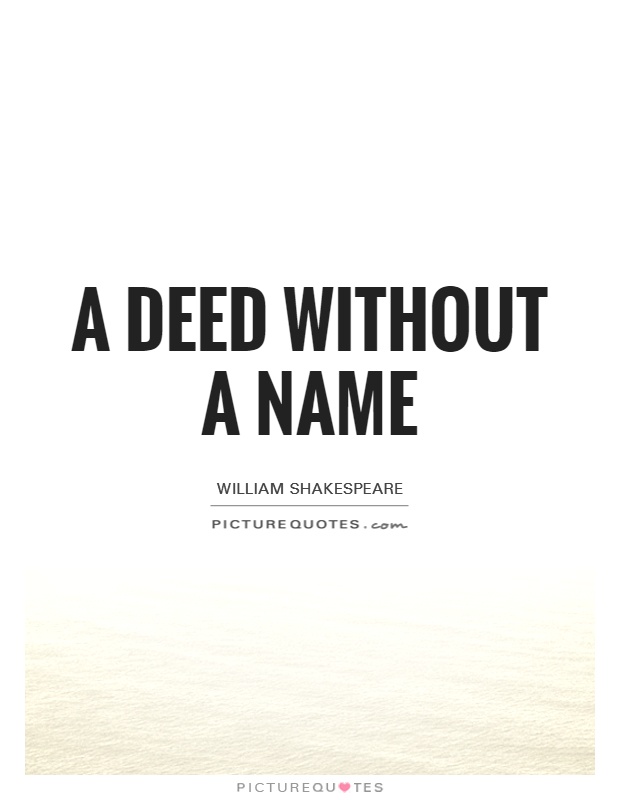A deed without a name

A deed without a name
In the world of William Shakespeare, the concept of a deed without a name is a powerful and mysterious one. Throughout his plays, Shakespeare explores the idea of actions that are done in secret, without recognition or acknowledgment. These deeds often have far-reaching consequences and can shape the course of a character's life or the plot of the play itself.One of the most famous examples of a deed without a name in Shakespeare's works is the murder of King Duncan in Macbeth. Macbeth and his wife, Lady Macbeth, conspire to kill the king in order to seize the throne for themselves. The murder is carried out in secret, with Macbeth committing the actual act while Lady Macbeth orchestrates the plan. The deed is done without a name, as Macbeth and Lady Macbeth do not take credit for the murder and instead try to cover up their involvement. However, the consequences of their actions are profound, leading to their own downfall and the destruction of their kingdom.
Another example of a deed without a name in Shakespeare's plays is the betrayal of Julius Caesar by his friend Brutus in Julius Caesar. Brutus joins a conspiracy to assassinate Caesar in order to prevent him from becoming a tyrant. The deed is done in secret, with Brutus and his fellow conspirators plotting behind Caesar's back. The assassination of Caesar sets off a chain of events that ultimately leads to civil war and the downfall of the Roman Republic.












 Friendship Quotes
Friendship Quotes Love Quotes
Love Quotes Life Quotes
Life Quotes Funny Quotes
Funny Quotes Motivational Quotes
Motivational Quotes Inspirational Quotes
Inspirational Quotes